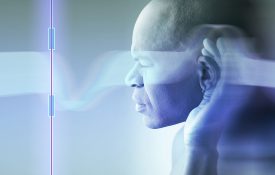-

Schooling Is Critical for Cognitive Health Throughout Life
Education provides little protection against the onset of cognitive declines but can boost the cognitive skills. [August 10, 2020] Visit Page
-
A Brain Implant Improved Memory, Scientists Report
Scientists have developed a brain implant that noticeably boosted memory in its first serious test run, perhaps offering a promising new strategy to treat dementia, traumatic brain injuries and other conditions that damage memory. The Visit Page
-
Deploying Technology to Revolutionize Science
The technology revolution is raising new questions for both the science and the applications of psychology. Can mental health care be delivered remotely over the Internet? Can we use neuroimaging technology to adaptively control our Visit Page
-

Hearing With Your Ears, Listening With Your Brain
A new field of research called cognitive hearing science holds particular significance for people with hearing impairments, whose inner ears don’t capture complete auditory information for the brain to process. Visit Page
-

Bilingualism and the Aging Brain
Bilingualism appears to have a positive influence cognitive reserve — the way the brain responds to neuropathological damage. Visit Page
-
Personal Identity In Our Morals, Not Our Memory
The Wall Street Journal: This summer my 93-year-old mother-in-law died, a few months after her 94–year-old husband. For the last five years, she had suffered from Alzheimer’s disease. By the end, she had forgotten almost Visit Page

